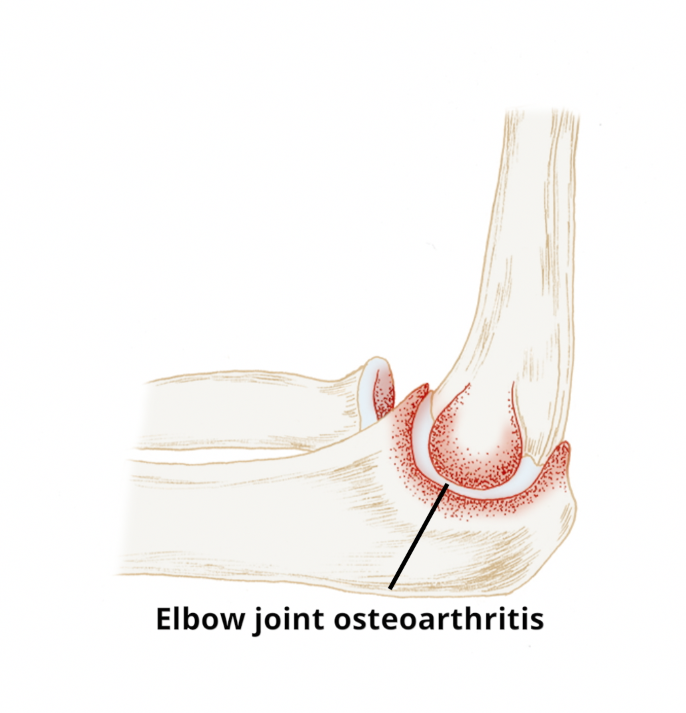Non-surgical management
In the majority of cases, the symptoms of elbow osteoarthritis can be managed effectively by non-invasive measures:
Exercises. Regular exercises to maintain flexibility and strength to the affected elbow joint.
Using painkillers when needed. Over-the-counter medications are available through pharmacies when needed. Anti-inflammatories such as Ibuprofen are sometimes used. However, as there is little or no inflammation involved in osteoarthritis, these are best avoided without discussing with your GP. Side effects are even more common than with paracetamol so please ensure to take appropriate medical advice. There is a good booklet on the Arthritis Research UK website with information about the various medication options.
Corticosteroid injection therapy. For individuals with moderate elbow osteoarthritis who continue to suffer from disabling symptoms in spite a course of non-surgical management (outlined above) or for patients who are unable to commence a supervised exercise program due to pain levels, a corticosteroid injection can be offered.
Surgical management
Total elbow replacement surgery is an effective option for patients with advanced stage elbow osteoarthritis who:
- Have trialled a course of non-surgical management without success
- Have consistent, disabling pain, significantly limiting function and/ or affecting sleep pattern
You may be asked to complete an elbow questionnaire. This can help the clinician assess the impact of your symptoms which can be useful in assessing suitability for surgery.
Further information about Osteoarthritis – www.versusarthritis.org
 Elbow joint osteoarthritis is a condition causing pain and stiffness in the affected elbow.
Elbow joint osteoarthritis is a condition causing pain and stiffness in the affected elbow.